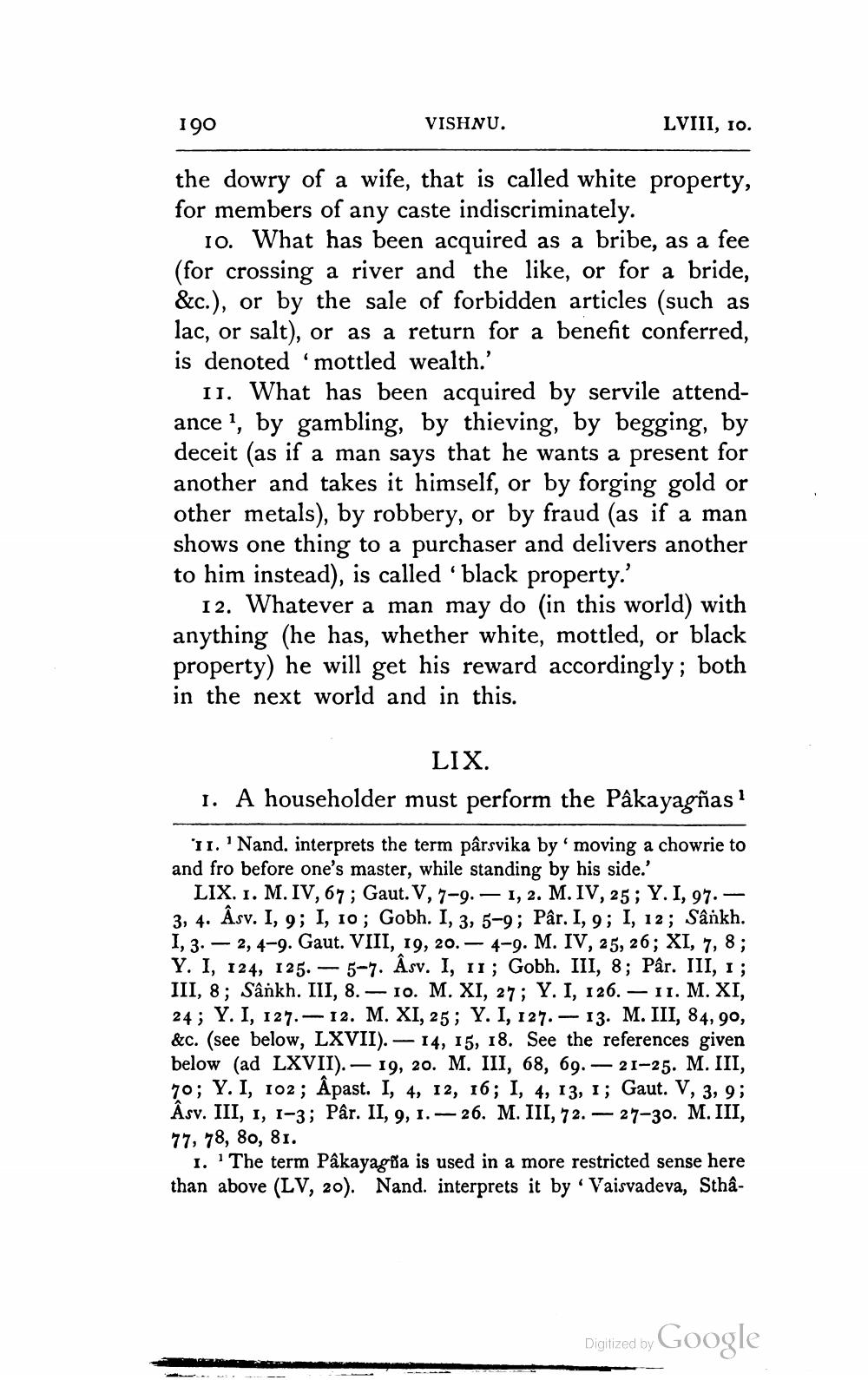________________
190
VISHNU.
LVIII, 10.
the dowry of a wife, that is called white property, for members of any caste indiscriminately.
10. What has been acquired as a bribe, as a fee (for crossing a river and the like, or for a bride, &c.), or by the sale of forbidden articles (such as lac, or salt), or as a return for a benefit conferred, is denoted 'mottled wealth.
II. What has been acquired by servile attendance ?, by gambling, by thieving, by begging, by deceit (as if a man says that he wants a present for another and takes it himself, or by forging gold or other metals), by robbery, or by fraud (as if a man shows one thing to a purchaser and delivers another to him instead), is called 'black property.'
12. Whatever a man may do (in this world) with anything (he has, whether white, mottled, or black property) he will get his reward accordingly; both in the next world and in this.
LIX. 1. A householder must perform the Pâkayagñas!
11. 'Nand, interprets the term pârsvika by moving a chowrie to and fro before one's master, while standing by his side.'
LIX. 1. M. IV, 67; Gaut. V, 7-9. — 1, 2. M. IV, 25; Y. I, 97. - 3, 4. Asv. I, 9; I, 10; Gobh. I, 3, 5-9; Pâr. I, 9; I, 12; Sânkh. I, 3. – 2,4-9. Gaut. VIII, 19, 20. — 4-9. M. IV, 25, 26; XI, 7, 8; Y. I, 124, 125. - 5-7. Asv. I, II; Gobh. III, 8; Pâr. III, 1; III, 8; Sânkh. III, 8. — 10. M. XI, 27; Y. I, 126. – 11. M. XI, 24; Y. I, 127.-12. M. XI, 25; Y. I, 127. - 13. M. III, 84, 90, &c. (see below, LXVII). — 14, 15, 18. See the references given below (ad LXVII). — 19, 20. M. III, 68, 69. — 21-25. M. III, 70; Y. I, 102; Apast. I, 4, 12, 16; I, 4, 13, I; Gaut. V, 3, 9; Asv. III, 1, 1-3; Par. II, 9, 1. - 26. M. III, 72. — 27-30. M. III, 77, 78, 80, 81.
1. The term Pâkayagña is used in a more restricted sense here than above (LV, 20). Nand. interprets it by Vaisvadeva, Sthâ
Digitized by
Digitized by Google




